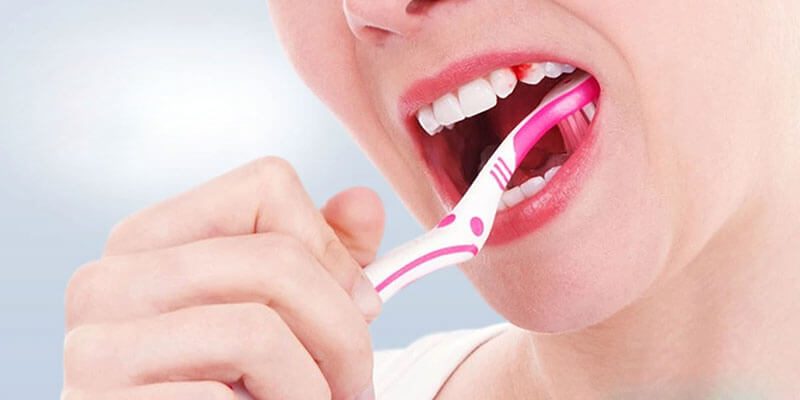What is Pregnancy Gingivitis?
If you have noticed you have bleeding gums when you brush your teeth, don’t worry, you are not alone. It is a common problem, which affects a lot of people but doesn’t ignore it! Usually, when gums bleed whilst brushing, they will continue to bleed whilst brushing. Teeth will not stop bleeding without care and attention, but hopefully, with early interference, they can be resolved. In this blog, we have to look at why gums bleed and what you can do to help.
In most cases, bleeding gums will be a sign of Gingivitis. Gingivitis is a common periodontal disease that causes swelling of the gums, because of bacteria being attached to the tooth surface. In other words, bleeding gums can occur over time if bacteria/plaque remain around the gum line, causing them to become brighter red and swollen, and therefore causing bleeding when brushing & flossing. If the plaque is left to accumulate it can also set and turn into a calcified and hard substance called calculus.

Reversing gingivitis
Gingivitis is reversible with good oral hygiene. However, it is important to note that without treatment, gingivitis can progress to periodontitis – periodontitis is a more deep form of gum disease as this is what can lead to bone loss around teeth and ultimately loss of tooth or teeth.
Can you treat gingivitis yourself?
If it is a case of removing soft plaque deposits then employing a correct brushing technique, using floss and mouthwash helps, but in most cases is not enough. A note about mouthwash; although it can help treat gum disease, it does not cure it.
Do your gums bleed when you brush your teeth?
If you find blood on your toothbrush, or in your sink when you brush, you should discuss this with a dental professional. We stimulate regular visits to the dentists to evaluate the health of your teeth and gums. Without such a Dental Checkup, you may not know the full extent of the problem – for example, if certain areas of the mouth have tartar built up if you have gingivitis.
Dentists and other Dental hygienists can treat gingivitis by removing deposits and cleaning under the gums of each tooth to ensure bacteria has been removed. A scale and polish are necessary to clean more difficult and harder to reach areas in the mouth, which are ignored during brushing; most people tend to have a build-up of tartar behind the lower front teeth as this is where there tends to be more saliva, hence any soft plaque will tend to mineralize and harden at a faster rate.
How often should I have a scale and polish?
Most of our patients have a scale and polish every 6 months, along with their routine dental examination to facilitate the prevention and treatment of gingivitis, and to help maintain the health of their teeth and gums.
What if I don’t visit a dentist or dental hygienist to treat my gingivitis?
If left untreated, gingivitis can lead to periodontitis; this is a more serious type of gum disease. If you have diabetics then you have a higher risk of developing gum disease such as periodontitis.
Once you have had treatment for gingivitis it is especially important to maintain your clean gums at home. At Shanti dentals, your dentist will tailor your oral hygiene routine specifically for you, and show you the best ways to care for your mouth. If you have to face Any kind of Gum Problem Call Us: +91 93-1001-2929 & Dr. Rajesh Bansal provides quality dental care at an affordable price to patients in Rohini.
See Your Dentist Regularly
Regular exams and cleanings will help you prevent problems and identify them early so they can be addressed in the most effective way possible.
Keep these tips in mind and enjoy a healthy mouth and teeth during winter. If you have to face Any kind of Dental Problem Call Us: +91 93-1001-2929 & Dr. Rajesh Bansal provides quality dental care at an affordable price to patients in Rohini.






